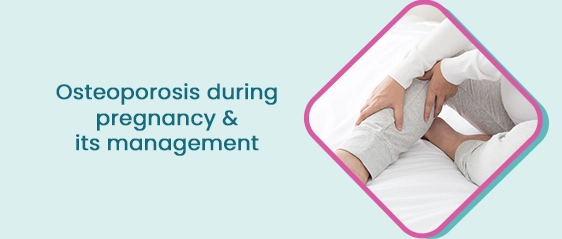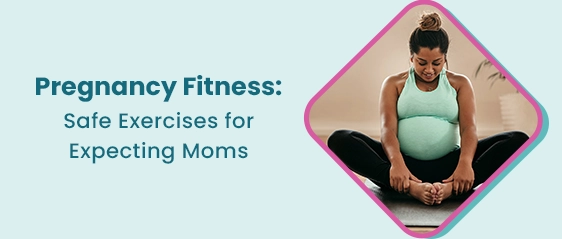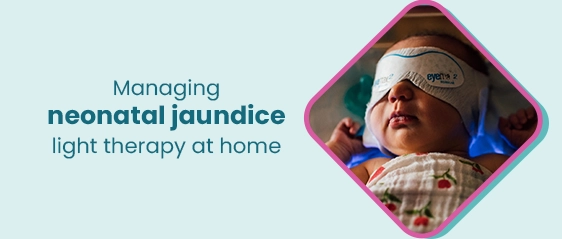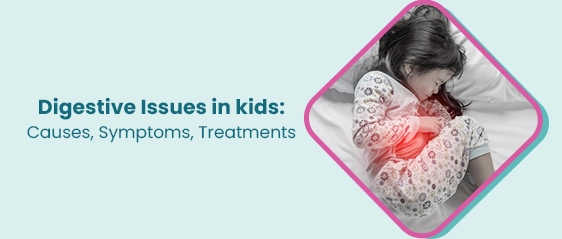
Osteoporosis During Pregnancy: Understanding and Management
- 14 Aug 2023
Pregnancy is a transformative and miraculous journey for women, marked by various physical and hormonal changes. However, there are instances when pre-existing health conditions intersect with this beautiful phase of life. One such condition is osteoporosis, a condition characterized by weakened bones. In this blog, we'll delve into the complex topic of osteoporosis during pregnancy, its potential implications, and effective management strategies.
Understanding Osteoporosis
Osteoporosis is an illness in which the bones get brittle and susceptible to fractures due to low bone density and compromised bone strength. While it's more commonly associated with aging, it can also impact younger individuals, including pregnant women. During pregnancy, the growing baby's demands for calcium can exacerbate bone density issues, making it essential for women with osteoporosis to be cautious and well-informed.
Osteoporosis and Pregnancy: Potential Challenges
Pregnancy is a time when a woman's body undergoes significant physiological changes, particularly in the hormonal realm. During pregnancy, the body prioritizes the developing baby's needs, often at the expense of the mother's bone health. Calcium is crucial for fetal development, and if the maternal diet lacks sufficient calcium, the body might source it from the mother's bones, potentially worsening osteoporosis.
Moreover, the hormonal shift during pregnancy can affect bone turnover, leading to further bone loss. Coupled with the added strain on the skeletal system due to the growing fetus, these factors create a unique challenge for pregnant women with osteoporosis.
Management Strategies
Effective management of osteoporosis during pregnancy requires a multidisciplinary approach involving obstetricians, endocrinologists, and nutritionists. Here are some strategies to consider:
- Nutrition: A diet rich in calcium, vitamin D, and other essential nutrients is vital. Dairy products, leafy greens, and calcium-fortified meals should all be included. If dietary intake isn't sufficient, calcium supplements might be recommended.
- Exercise: Low-impact exercises that promote bone health, like walking, swimming, and prenatal yoga, can be beneficial. Before beginning any fitness routine, consult with a healthcare physician.
- Supplements: Prenatal vitamins often include calcium and vitamin D. However, the dosage and type of supplements should be discussed with a healthcare professional.
- Medications: Certain osteoporosis medications might not be safe during pregnancy due to potential risks to the fetus. Consult with your healthcare provider to determine the best course of action.
- Regular Monitoring: Regular bone density assessments and check-ups are crucial to monitor the progression of osteoporosis during pregnancy.
- Weight Management: Maintaining a healthy weight can help reduce strain on the skeletal system and minimize potential fractures.
- Fall Prevention: Pregnant women with osteoporosis should take extra precautions to prevent falls, such as wearing proper footwear and avoiding hazards.
- Consult Healthcare Providers: Open and regular communication with obstetricians and endocrinologists is essential to ensure a safe and healthy pregnancy. They can help tailor a management plan based on individual needs.
Conclusion
Osteoporosis during pregnancy presents unique challenges that require careful consideration and proactive management. Balancing the needs of both the developing baby and the mother's bone health is of utmost importance. By adopting a comprehensive approach that includes proper nutrition, exercise, and expert medical guidance, women with osteoporosis can navigate pregnancy with confidence and reduce the potential impact of this condition on their overall well-being. Always remember that every pregnancy is different, and personalized care is key to ensuring a safe and healthy journey for both mother and child.
Medicover Hospitals is your partner in the remarkable journey of pregnancy, with a team of skilled obstetricians, state-of-the-art facilities, and a patient-centered approach, we offer a range of specialized services to ensure a safe, comfortable, and memorable pregnancy experience.
Frequently Asked Questions
1. Can osteoporosis develop or worsen during pregnancy?
Yes, pregnancy can exacerbate osteoporosis due to the increased demand for calcium by the developing baby. The body may source calcium from the mother's bones, potentially worsening bone density issues.
2. What causes osteoporosis during pregnancy?
Osteoporosis during pregnancy can result from a combination of hormonal changes, increased calcium demands for fetal development, and changes in bone turnover that affect bone health.
3. Is osteoporosis common during pregnancy?
Osteoporosis during pregnancy is relatively rare but can occur, particularly in women with pre-existing bone health concerns.
4. How does osteoporosis affect pregnancy?
Osteoporosis can increase the risk of fractures during pregnancy and impact the mother's bone health. It might also affect the overall health of both the mother and the developing baby
5. Can I take calcium supplements during pregnancy to manage osteoporosis?
Yes, calcium supplements might be recommended to ensure you're meeting your increased calcium needs during pregnancy. Consult your healthcare provider for the right dosage and type of supplement.
6. Are medications for osteoporosis safe to use during pregnancy?
Some medications for osteoporosis might not be safe during pregnancy due to potential risks to the fetus. Always consult with your healthcare provider before taking any medication during pregnancy.
7. How can I prevent fractures during pregnancy if I have osteoporosis?
Engage in low-impact exercises that promote bone health, maintain a healthy weight, and take precautions to prevent falls, such as wearing proper footwear and avoiding hazards
8. Should I avoid getting pregnant if I have osteoporosis?
The decision to become pregnant should be discussed with your healthcare provider. They can help assess the potential risks and guide you on managing your bone health during pregnancy
9. Can I breastfeed if I have osteoporosis?
Breastfeeding is generally considered safe for women with osteoporosis. However, consult your healthcare provider to ensure you're meeting your nutritional needs
10. How often should I have bone density assessments during pregnancy?
The frequency of bone density assessments will depend on your individual case and the recommendations of your healthcare provider. Regular monitoring is important to track any changes in bone health.
11. Can I continue my regular exercise routine if I have osteoporosis during pregnancy?
Low-impact exercises that promote bone health, like walking and prenatal yoga, can be beneficial. However, consult your healthcare provider before making any changes to your exercise routine
12. Is a C-section recommended for women with osteoporosis to prevent fractures during childbirth?
The mode of delivery will be determined by various factors, including your bone health and overall pregnancy status. Your healthcare provider will guide you on the safest option for both you and the baby
13. How can I ensure a healthy pregnancy with osteoporosis?
Open communication with your healthcare providers, adhering to their recommendations, maintaining a balanced diet, and taking appropriate precautions can help ensure a safe and healthy pregnancy
14. Can osteoporosis affect the health of the developing baby?
While osteoporosis primarily affects the mother's bone health, it's essential to manage the condition to ensure your overall well-being, which indirectly contributes to a healthy pregnancy
15. What should I do if I suspect I have osteoporosis during pregnancy?
If you suspect you have osteoporosis or are concerned about your bone health during pregnancy, consult a healthcare provider as soon as possible. They can assess your condition and develop a personalized management plan.




